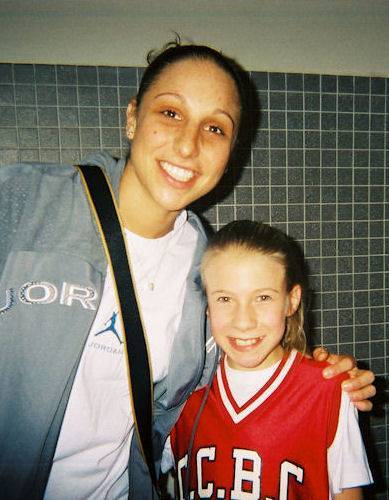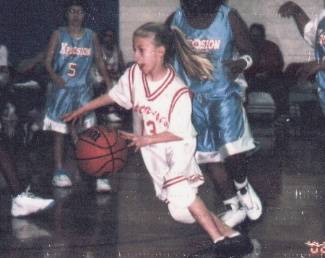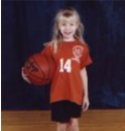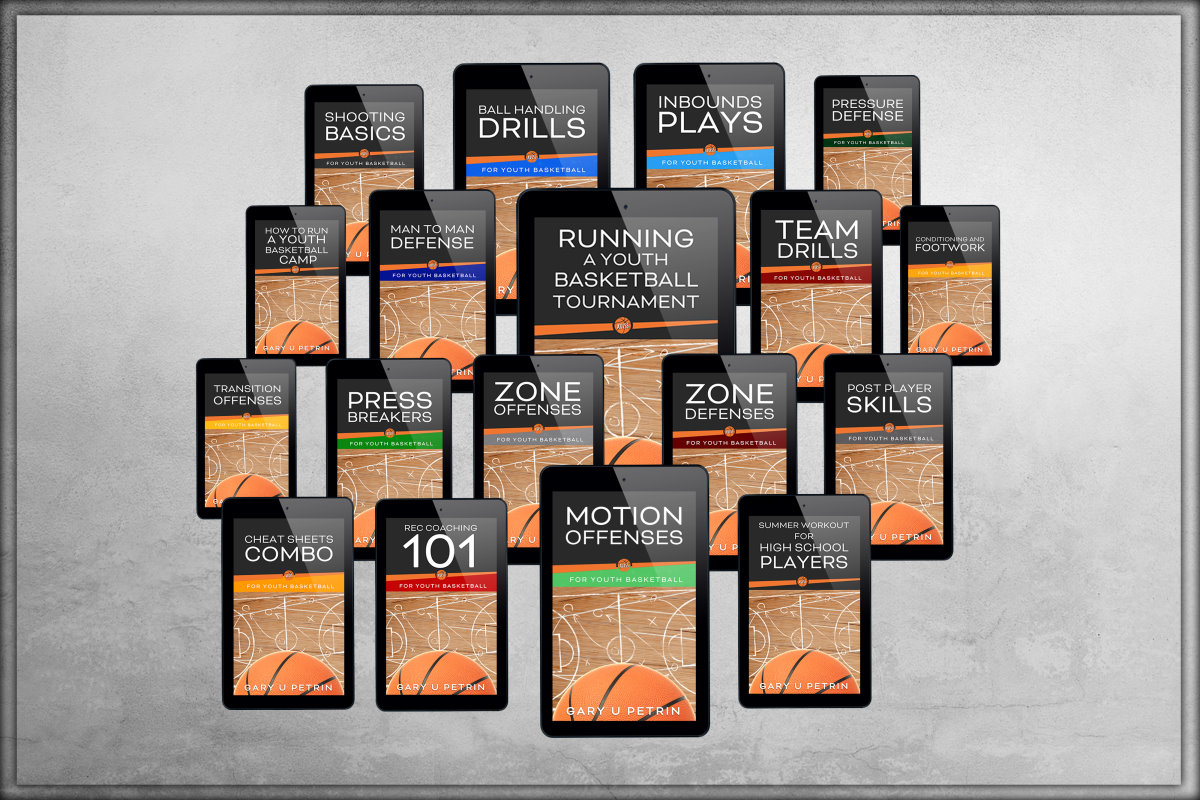The Role of Youth Basketball Parents
Sportsmanship:
Some youth basketball parents feel that “Sportsmanship” is the sole responsibility of the coach, but nothing can be further than the truth. Laying down the foundation of sportsmanship must be the job of the parents, and coaches are responsible for “enforcing” the basic guidelines of sportsmanship. As a result both the parents and coaches have a big role in the behavior of the players (it’s not just the function of the coach). Win or Lose, players must exhibit good sportsmanship at all times. Players must never be allowed to blame the referees, other players, or the coaches for bad decisions or calls – this is unacceptable! And never should players be allowed to make fun of opponents, brag, or trash talk after a victory (even in victory good sportsmanship is crucial).
Players can learn valuable “life-lessons” (including character) over the long term if they are taught respect, responsibility, and good sportsmanship by both the parents and coaches. Now let’s look at The Role of Youth Basketball Parents below.

Tryouts
Prepare your child for the good and the bad:
As a parent the first thing you must discuss with your child is the possible “outcomes” of tryouts. In most competitive leagues, there are usually “cuts” made – so your child could make the team or they could be “cut” from the team – make sure you prepare your child for both. If your child makes the team, there will be a commitment to be made (is your child ready to make this commitment, and work hard to help the team be successful). If your child gets cut from the team, it could be devastating (or not), but either way try to discuss all the possibilities before going to the tryouts.
* Another very important point to be made is that as a parent you must realize your child’s talents – are they good enough to make the team, or is the parent unaware of the child’s real talents. It is difficult for a parent to made this judgement call (even though most parents still do).

Parents and Coaches:
“Communication is the Key”
a) Understanding the Coaches Expectations: One of the biggest mistakes made by a parent is not knowing what the coaches expectations are up front (practices, guidelines, playing time, rules, philosophy, etc.). Coaches should make this information readily available at tryouts, but if not, the parents should have a discussion with the coach immediately (or at least before making a commitment to the team).
Check out the enclosed “Sample” Team Memo from a Coach to their team at the beginning of the season – this example covers items such as player fee’s, number of practices, being on time, parents being at practices, goals, expectations of both the parents and the players, etc. Sample Team Memo (First One) – Handout
Here is just the second part of the Team Memo Sample Team Goals / Expectation Memo – Handout
b) Playing Time: Rec Leagues usually have guidelines about playing times, but competitive leagues usually do not. Be aware of this prior to confronting the coach. If you feel your child is not getting the playing time they deserve, you must discuss this with the coach (in a civilized manner – never confrontational).
Sample (non-confrontational) question: What specific thing can my son / daughter work on to receive more playing time?
The coach should have an answer for this question because there has to be some reason why the player does not get adequate playing time, right? If your son / daughter works hard, and still does not receive playing time, there may be another problem?
c) Problems / Concerns: Any and all problems and concerns must be dealt with swiftly, but in a non-confrontational manner. Parents that get upset and confront the coach at the game will not likely get a positive response from the coach (the coach is less likely to discuss the concern if approached in a negative manner). Your goal is to work out a positive solution to your problem, not make the problem worse.
The Role of Youth Basketball Parents must be to support the coach and their child. Parents that don’t agree with a coach or believe in their coaching style, still must be supportive. Sometimes parents will make comments in front of their child about the coach – This is probably the number one mistake a parent can make. Parents must refrain from making comments that will be detrimental to the team. It is hard being a parent on the sideline, but it’s even harder being the coach.

If a parent feels that the coach is not helping their child develop basketball skills – they should try to do something about it. A parent should give this some thought before jumping to any conclusions (there may be a slight chance that your view of the coach is one-sided). Consult other parents to see how they are feeling about the situation. There could be more parents that feel as you do, or you could be the only one?
Parents
Here are a couple of suggestions if you are unhappy with your child’s coach:
1. Therefore, a parent should look into how you could become the coach yourself (make sure you have the time before committing).
2. Talk to the Club Administrator / Director of the basketball organization you belong to.
3. Take your child to another team (but be cautioned, it could turn out to be a worse situation, or not?).
In short, The Role of Youth Basketball Parents should either be to support the coach and the team, or get out of the situation so they don’t make it a negative experience for all involved. I would not suggest that the parent talk to the coach about his/her’s poor coaching performance, ever. I am 100% sure that it would not do any good (it would be “rare” for a coach to respond in such a way as to agree that they are performing poorly as a coach). The parent would most likely be labelled as “trouble” by the coach, and additional friction between the coach and parent (if a parent elects to have this type of conversation with the coach, they should choose their words wisely, and proceed with caution.

Player Pressures!
Think about how difficult it can be for a young player to deal with all the pressures when they step on the court:
a) They have to handle the “butterflies” at the start of the game.
b) They have to remember the plays (offenses and defenses).
c) They have to deal with the “trash talking” of the opposite teams players.
d) They have to deal with the coaches yelling out instructions.
e) They have to deal with the Referee’s calls. Younger players can lose focus very easily if they allow a referee’s call to bother them.
f) They have to deal with missed shots, turnovers, dropped passes, etc…
g) They have to deal with parents who are yelling and screaming at them or at the refs…
As you can see, younger players have a lot to deal with. It is difficult to maintain focus to be able to play at their best. As a parent do you really want to be part of the problem? Do you want to take part in helping the players lose focus? Most parents do not understand how they can affect the players performance in the game.

The absolute worst mistake a parent can make!
Is Yelling at and / or chewing out their child after a game. There is nothing good that can ever come out of a parent chewing out their child after a game. The last thing a player wants to hear is how bad they played from their parents. Especially after they’ve already heard it all from their coach. So parents, when you feel the urge to chew out your child for poor performance. Please remember that you could be doing more damage than good.
a) I’ve seen many good players stop playing basketball because they really couldn’t take all the abuse anymore.
b) Some players will not try as hard during practices. They are scared that if they make a mistake, they will get yelled at.
c) Players can lose interest. Even though they stay on the team, they are not motivated to improve their skills.

Real Life examples of negative parental / coaching behavior:
a) At a 10 year old nationals tournament a parent runs out on the court and tackles a referee. This parent continues to beat on the ref in front of players from both teams. A shocking experience for players at this age.
b) A coach is very upset with the referees calls during the first three quarter of the game. This coach decides to assign one of his players to “guard” one of the refs for the last quarter of the game (yes, guard the ref). The player is in tears most of the time, and is completely embarrassed. The coach did not have the best interest of his team in mind when he came up with this “bright” idea.
c) At an 11 year old tournament, a parent runs out and cusses out a referee in front of all the players. The referee warns the parents and coaches that if this occurs again, he will stop the game. Well it happened again, and the referee stopped the game, and gave the win to the opposing team (which was my team). Half the crowd immediately ran onto the court in a crazed frenzy, we huddled the players into a corner of the gym. The players were scared to death to even go back into the gym the next day. This was not a very pleasant experience.
Cussing at the refs, Really?
d) A parent of a 10 year old player is screaming and cussing at the referees so loud, the player is crying on the court. This player is taken out of the game to see if she was hurt. But it was found that the player was upset at their Dad for acting like that. An assistant coach went into the stands and asked him to stop (or the player will be benched). This parent did not stop so the player sat the bench until the Dad got up and left the building. The report was that this parent never brought his daughter back to practice.
e) After losing a game by only a few points, the head coach walks up to one of his players, points at her and says “you were the reason why we lost that game,” and walks away. This 12 year old player is devastated. I cannot think of anything worse that a coach could say to a player.
These examples of negative behavior should never be tolerated or allowed to continue. Above all it’s a shame that young players must experience this type of behavior, especially from their parents or coaches. The role of youth basketball parents is extremely important to the success of their child’s growth.
What are organizations doing to help remedy parental behavior?
a) Most State sports organizations are making parents sign “code of ethics” forms.
b) There are more rules in place to remove unruly parents and spectators from games.
c) Local sports organizations are requiring parents to sign mandatory forms to curb parent behavior.
d) Many coaches are now educating parents on the subject, and imposing teams rules for this type of behavior.
Hence, not all parents and coaches have problems with negative behavior as described. But knowing that there are parents that do have this problem is very disturbing. This behavior is affecting our children. Players should not miss out on the major principles of playing youth sports. Learning sportsmanship, life lessons, teamwork, and most of all having some fun in the spirit of competition!
Check out our database of video clips – Example Ball Handling Drill

The Role of Youth Basketball Parents
All the Handouts related to Basketball Parents
Check out our New Downloads Now!

